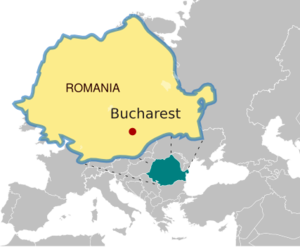The traditional passage of shepherds and sheep tramples the ground but does not destroy biodiversity – rather, it creates spaces and opportunities to make animals, plants and even people more resilient. A researcher studied it in the lab and in the Romanian mountains where she grew up
Romania, the rebirth of a spa town
Framing the past: How Roma people are depicted in Romanian and Greek schools
Romania, the preservation of memory in family recipe books
Still too many Europeans have no toilet at home
Romania and Bulgaria, trains worth improving
Romania, volunteers for the diaspora
Austro-Hungarian spas in Romania
Băile Herculane is among the oldest and most popular spas in Romania. It reached the peak of its splendour in the second half of the 19th century, when the region was part of the Austro-Hungarian Empire.
Romania, living on the fringe
Valentin and Mirela are a Romanian couple, aged 57 and 52. They live in Podu Văleni, a small village about 40 km from Bucharest. Theirs is one of those almost invisible stories, on the fringes of society. Valentin used to work as a mechanic and custodian, before a second stroke forced him to retire. Mirela suffers from mental problems and, like her partner, from epilepsy. They receive about 1,780 lei each per month (about 350 euro) from the Romanian state, which they use for medicines, electricity and food.




